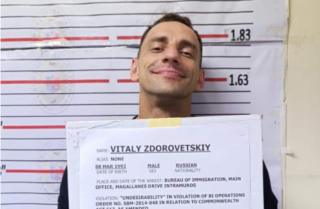Deng Xiaoping famously remarked, “It doesn’t matter whether a cat is black or white. As long as it catches mice, it is a good cat.” His pragmatic point of view created decades of prosperity for China — at the cost of the Tiananmen Square massacre — after the ideological cannibalism of the Cultural Revolution. With the ongoing Great About-face to China, one would think this sort of pragmatism would provide some sort of lesson to our local paramount leader. Some, in fact, believe this is happening. One example is the general lessening of tensions after responsibility for the conduct of the so-called war on drugs to be moved from the police to the Philippine Drug Enforcement Agency (PDEA). After all no one can object to the recently-rolled-out slogan, “Love Life, Fight Drugs,” of the Dangerous Drugs Board (DDB), which is PDEA’s mother agency (and makes policy in contrast to PDEA, which implements it).
Slogans are one thing, but there are two troubling realities that should make people pause before they prematurely start praising PDEA. The first involves the overall leadership of the DDB. Last May, President Duterte fired Benjamin Reyes as its head for sticking to its official 2015 numbers. In Reyes’ place, the President appointed retired general Dionisio Santiago, who headed PDEA for a time under Gloria Macapagal Arroyo. Back in 2009, he stated the agency sometimes planted evidence: “We sometimes do this although this is against the rule of law. Definitely we only apply this matter to some cases, like a subject who is publicly known to be peddling drugs but always escapes arrest. This is when we enter the picture.” This was after months of the agency being embroiled in the “Alabang Boys” controversy, with allegations of agents trying to shake down suspects for bribes, and the agents arguing they were being stymied by well-connected suspects on the other. The solution put forward was typical and, in retrospect, a sign of things to come: Why not appoint Jovito Palparan to head the anti-drug campaign?
Toward the end of 2009, Santiago then submitted a list of drug suspects (that he put together in “less than a month”) to Arroyo who, however, declined to release it. It seems by March of 2010, Arroyo had given Norberto Gonzales, her national security adviser, a list of suspects. Gonzales told a foreign reporter that “reports linking some congressmen, councilors, and local government officials with drug syndicates or drug lords” had been “received,” but then defense secretary Gilbert Teodoro commented that “the problem does not involve politicians at the national level.” Santiago then peddled his list to Voltaire Gazmin and then president Aquino, and later, to Duterte, a man who — as he himself said in August 2016 — isn’t afraid to cut corners, such as planting evidence, to get the results he desires. He has taken to using Santiago’s list as a prop, mistakes and all. And so the first thing to make you pause is that there has been no change, whatsoever, in methods and intent, as far as the campaign against drugs is concerned. Santiago is living proof of this.
Which brings us to the second reason to pause before engaging in praise. The President has been candid in his dissatisfaction with the police, not necessarily for the body count it has racked up (or, which has been racked up by gangs rubbing out their own assets), but for being too public, messy, and careless about it, to the extent that this forced him to repeatedly put the campaign on hold or slow it down, as domestic and global opinion criticized the liquidations that have taken place. The frustration of the President and the police leadership over this can be measured by the irritation over how a supposed-to-be publicity coup — the official finding that the lady in the famous photo by Raffy Lerma was rubbed out by a drug gang and not the cops — doesn’t seem to have calmed the public or redeemed the cops. More to the point, the President has been vocal about expecting PDEA to fail. Which suggests he is grudgingly beating a strategic retreat for now, but chomping at the bit to resume the means and methods he has preferred all along, once public opinion subsides.
Yet the fate of Iloilo mayor Jed Mabilog is a case in point, as old as the FBI in its war on gangsters in the 1930s when it put Al Capone behind bars for the unexciting but thoroughly proven offense of failing to pay proper taxes. It took the Ombudsman to take Mabilog out of the picture after the President thundered and shrilled, only to have police intramurals vomit out his preferred mayor-buster from being assigned to the city, and having (as chatter from Iloilo has it) 20 conventions cancelled and Ilonggos in general upset. Find a good cat. Do not arm an old one with napalm.


